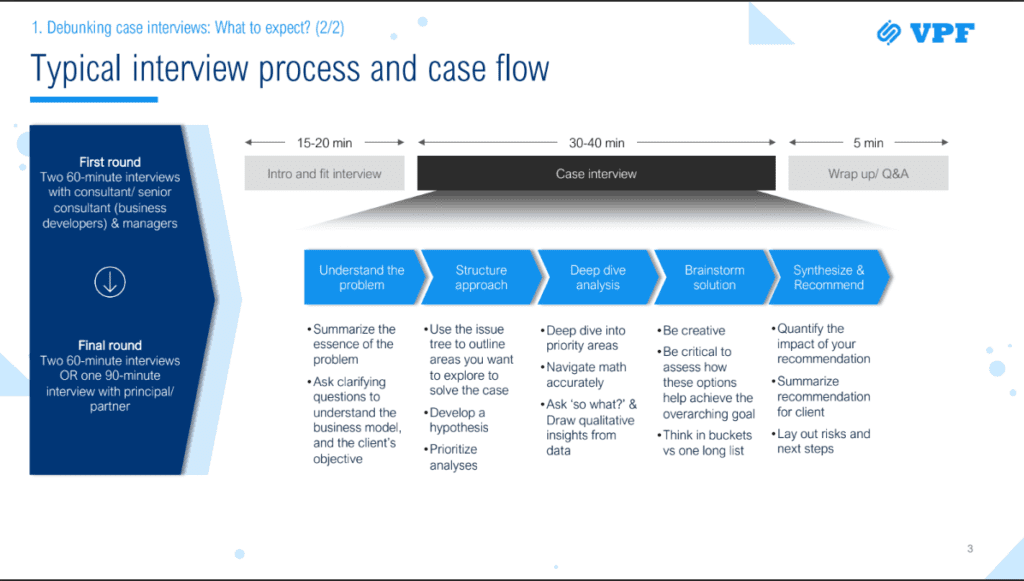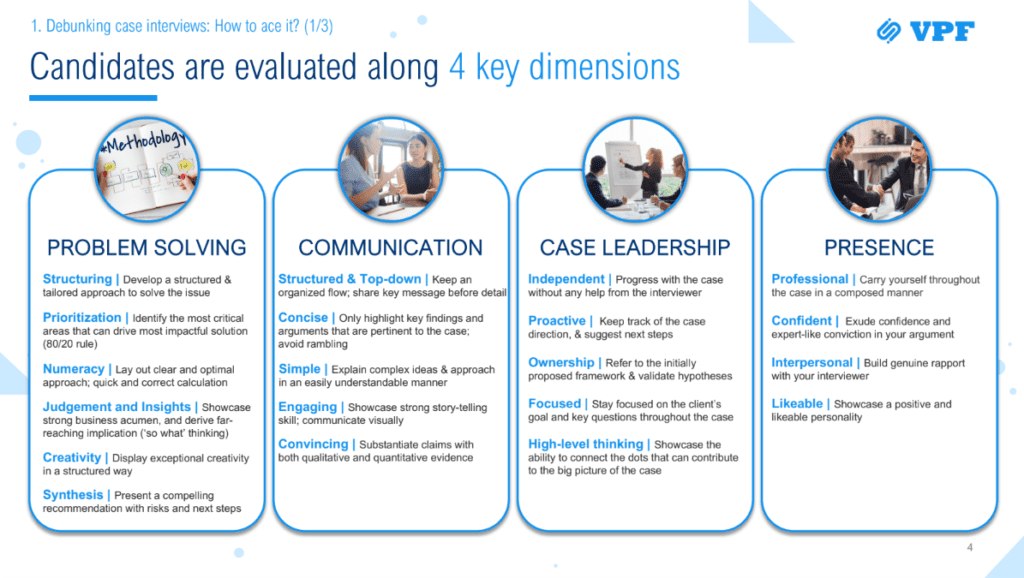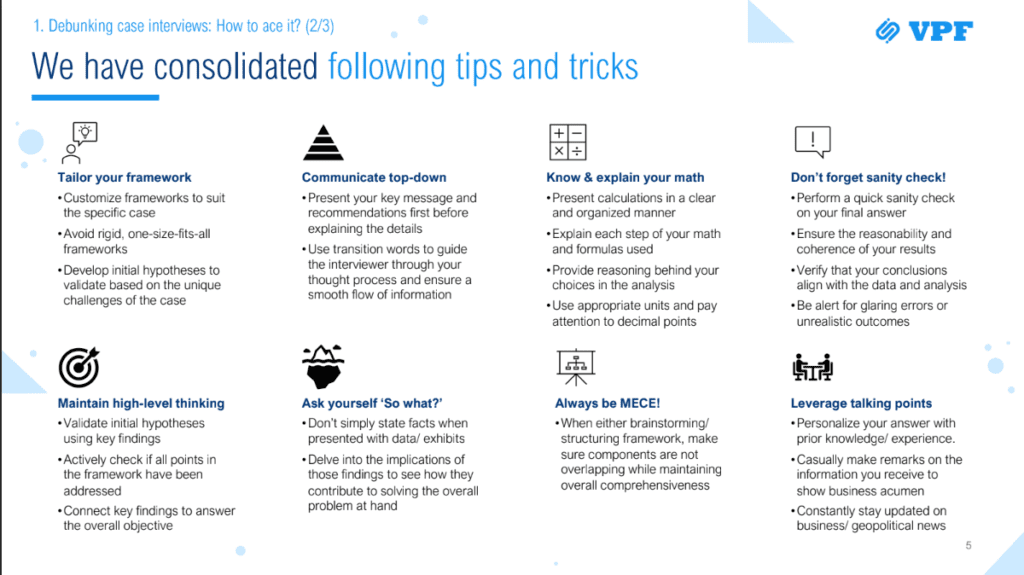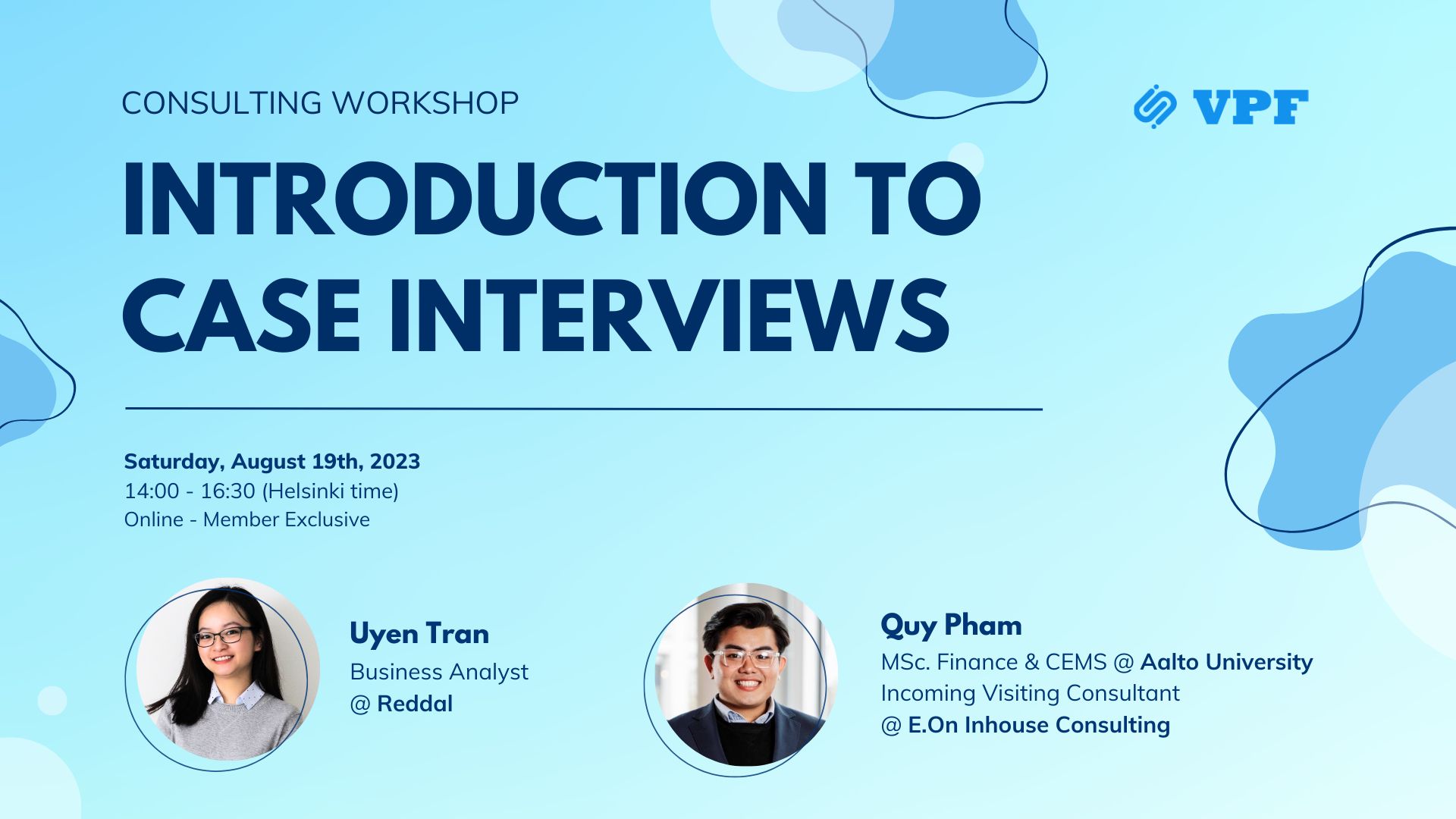Is management consulting a viable career option for international students? Do you need to be fluent in Finnish, have a strong business background or extensive consulting internship experience to succeed in this field? During this event, our speakers and facilitators dispelled common myths about this career path and provided practical advice on how to impress recruiters during case interviews.
Debunking case interview – what to expect?
During a case interview, you will be given a fictional business problem to solve. The interview is designed to assess your critical thinking, problem-solving, and communication skills. The interview typically lasts between 30-40 minutes, so it’s important to be well-prepared to present a solution within a short timeframe.
There are two common types of case interviews: candidate-led or interview-led. Regardless of the format, you need to take the initiative and lead conversations during the interview.
The topics covered during the interview can vary, but may include analyzing the causes of a drop in profit, determining the best ways to grow a company, or evaluating whether a company should acquire another. Instead of trying to memorize every possible scenario and subsequent frameworks, having a basic framework and tailoring it to the client’s challenges can help you navigate any case that is presented.
Though practices may vary among consulting firms, internship/associate positions usually consist of two rounds, each with two case interviews. The first round is typically more structured and well-defined, while the second round requires you to take more initiative to frame the problem. The following is a common structure of a case interview:

It’s important to remember that the first two steps are crucial when it comes to solving problems. By comprehending the issue and asking appropriate clarifying questions, you can solve 60% of the case. In the following section, we’ll guide you through the essential assessment standards and some useful pointers to guarantee success.
How to ace a case interview?
During a case interview, the interviewer aims to assess candidates’ analytical, problem-solving, and communication skills in a realistic business setting. The graph provided below provides a detailed breakdown of each aspect.

A key tip is to keep a structured approach and tailor the framework based on the business context. We do so by effectively utilizing MECE principles and an issue/hypothesis tree. Quy and Uyen demonstrated how the issue/hypothesis tree can be applied in a typical interview. They recommended always asking “so what” to identify the connections between the company’s objectives and your solutions.
Additionally, conducting a sanity/hygiene check can help you avoid small errors that could derail your solution. It’s helpful to cross-check your math before presenting your solutions to the interviewers.
If you need practice before the interview, it’s perfectly okay to reach out to the recruiters and ask for a mock interview. Your mock performance won’t count against you. Additionally, our speakers and facilitators recommend applying for as many positions as possible to hone your case-solving skills through interview experience. It’s also recommended to schedule the interview with your favorite company at the end to increase your chances of success in the final rounds of interviews.
Here are a few other helpful tips to consider:

Workshop session
Understanding the situation at hand and establishing a clear structure are critical steps during a case interview. Our speakers and facilitators guided attendees through this process and assisted solving the case during our workshop session. To follow-up, we have provided each attendee with an information package to explore further at their own pace.
Key takeaways
The event provided lots of information, but the main points to remember are:
- Take a structural approach to problem-solving that considers all aspects holistically.
- Keep in mind that your communication with interviewers reflects how you’ll communicate with future managers. Effective communication helps you steer the case in the right direction.
- Stay calm and confident during interviews. Remember that the interviewer wants you to succeed, so feel free to test ideas and discuss with them to find the right hypothesis.
Special thanks to
The success of the event was largely due to the contributions of our guest speakers Quy Pham and Uyen Tran, as well as our facilitators Thuy Le, Phuong Anh Huynh, and Linh Dang. We were fortunate to have such experienced consultants present, and we sincerely thank them for their time and effort in making the event successful.

